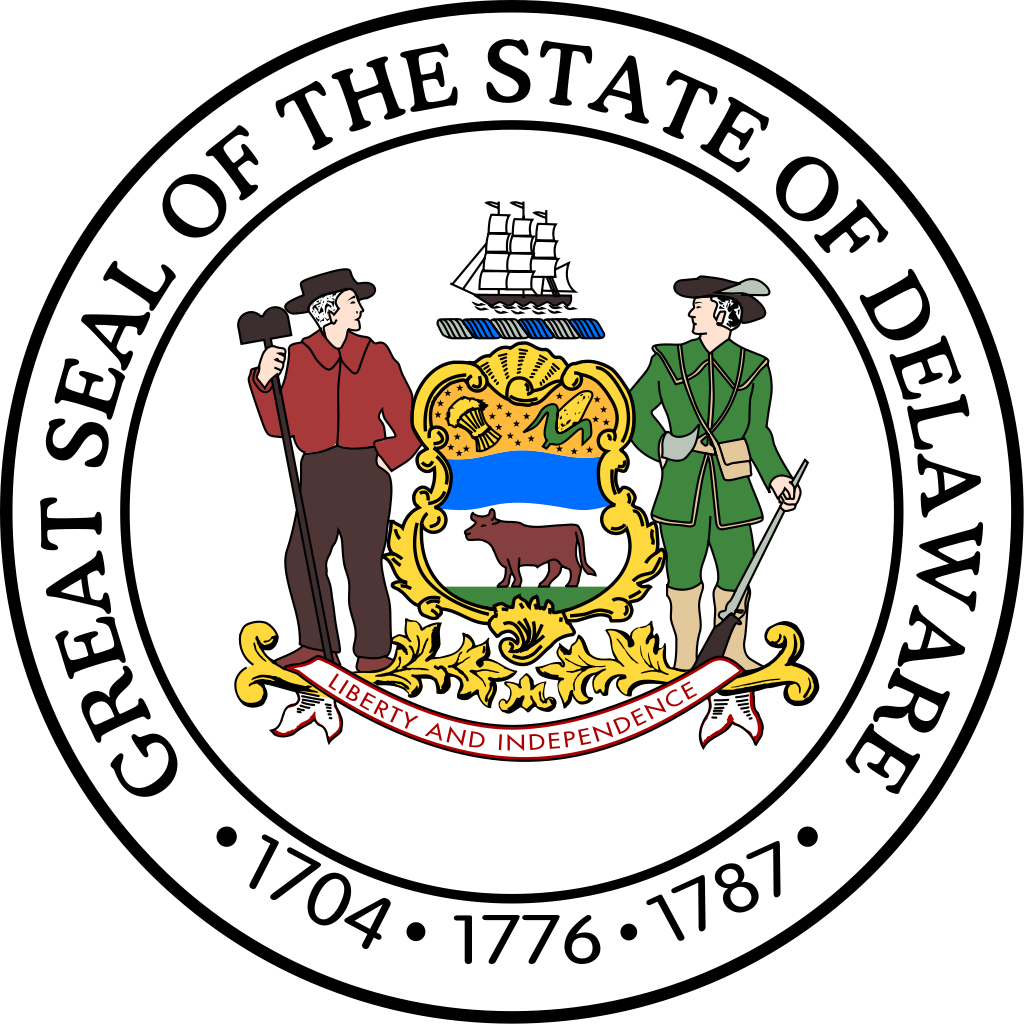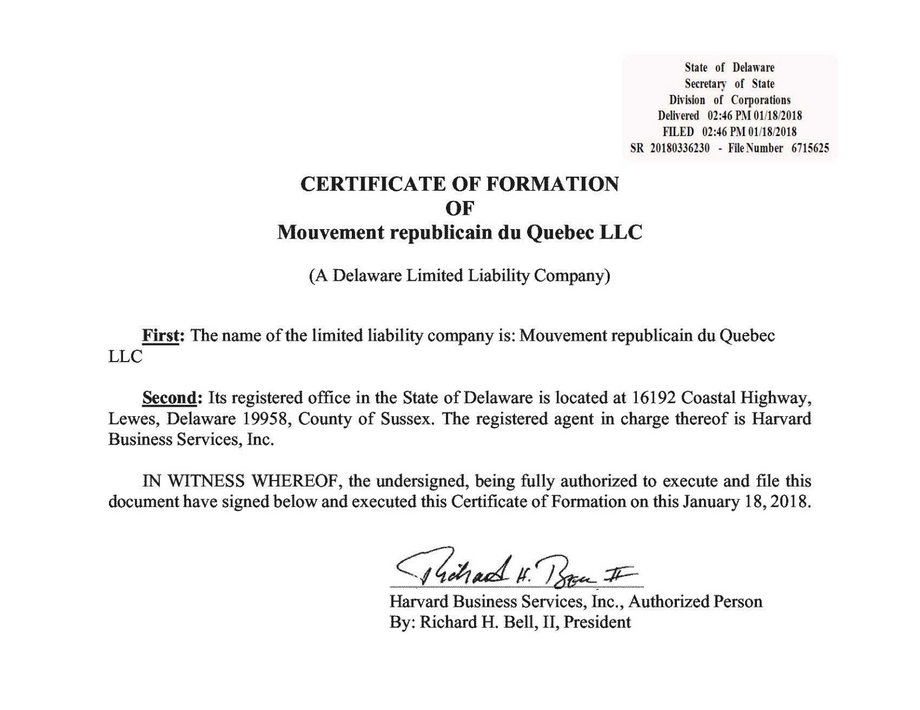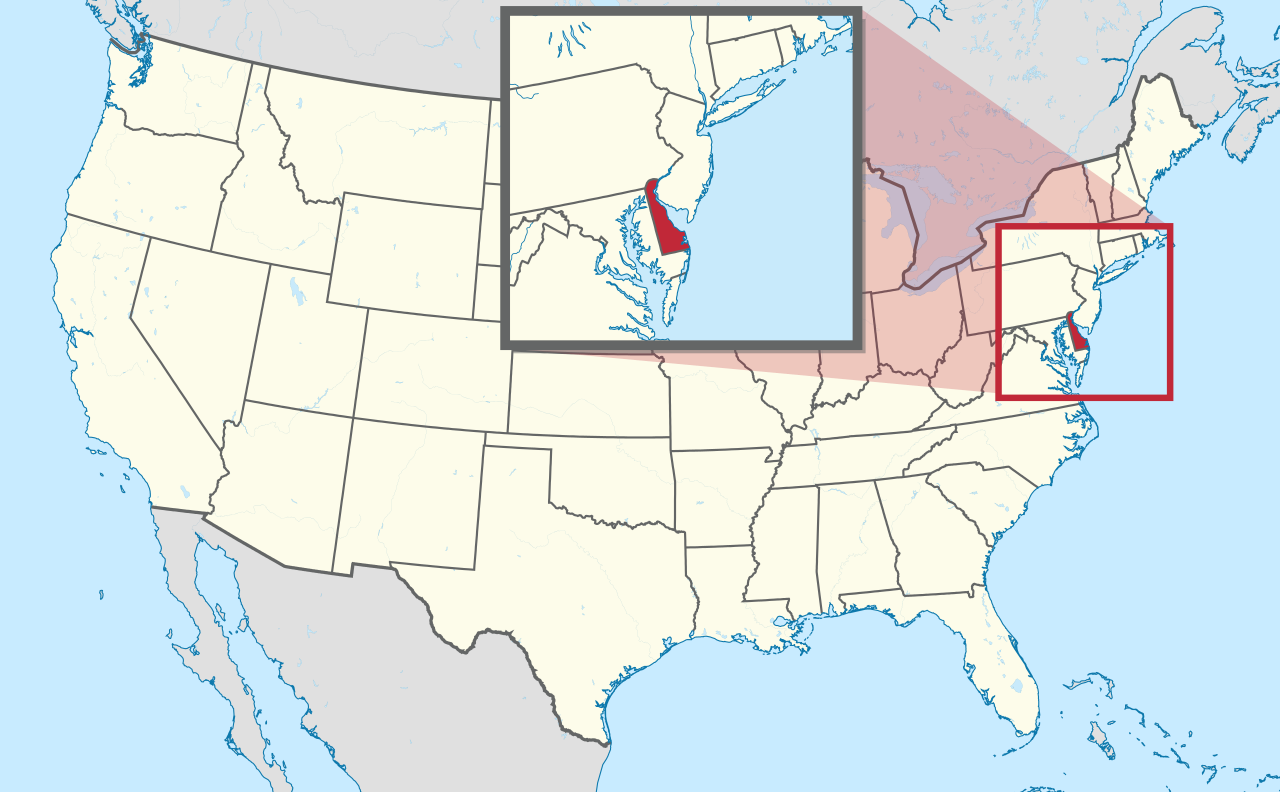A Patriotic Association in Exile
 The Republican Movement of Quebec is a patriotic organization incorporated in the state of Delaware, in the United States. Like some of our ancestors who had to take the road of exile in the nineteenth century, the organization is considered to be a "Patriotic Association in Exile". In fact, on October 19, 1840, Le Canadien gave us news of the Patriots who had to leave the country, the majority for the United States. We even find Dr. Duchesnois in South America :
The Republican Movement of Quebec is a patriotic organization incorporated in the state of Delaware, in the United States. Like some of our ancestors who had to take the road of exile in the nineteenth century, the organization is considered to be a "Patriotic Association in Exile". In fact, on October 19, 1840, Le Canadien gave us news of the Patriots who had to leave the country, the majority for the United States. We even find Dr. Duchesnois in South America :
"La Canadienne publishes the following list of Canadian Refugees (note: 1837-1838 Rebellions) with the places of their present residence. We will limit ourselves to regretting that La Canadienne, by its writings and those of its correspondents, would furnish to the Government, if any missing, pretexts to prolong the exile of these unfortunates." (Le Canadien, October 9, 1840).
In the same vein, on September 25, 1839, 58 patriots learned that they were deported to Australia the next day (La cabane du Patriote Durocher). So - for the moment - the Republican Movement of Quebec is no exception to this rule.
The date of incorporation of the MRQ in Delaware is January 18, 2018, substantially corresponding to January 21, 1948, the day the fleur-de-lis took the place of the British flag at the top of the central tower of the Parliament. By order of the day, the Quebec government granted him the status of official flag of Quebec that morning. It is to underline this ceremony that the 21st of January was decreed the Day of the Flag. January 21st is also the Debate on Languages, first debate in the House of Assembly of Lower Canada (Quebec) held in 1793 and where it was decided to keep the minutes in French and English, without precedence of the 2nd on the 1st. By having the Republican Movement of Quebec constituted in the State of Delaware, this assigns it an official founding date, while February 14, 2017 will remain in our memories as the date of creation of the grouping.
Limited liability company
A Limited Liability Company, also known as an LLC, is a type of business structure that combines traits of both a sole-proprietorship and a corporation. An LLC is eligible for the pass-through taxation feature of a partnership or sole proprietorship, while at the same time limiting the liability of the owners, similar to a corporation. Limited Liability Companies are recognized in all 50 states and the District of Columbia. In most states any type of business can form an LLC, though some state laws may require at least two members in order to form one.
LLCs do not have a legal requirement to conduct formal meetings, maintain minutes of the meeting, or record resolutions.
The organization does not have to have its headquarters or do business in the state of Delaware. In addition, there is no requirement for officers to reside in Delaware, or hold any meeting or meeting there. As a Patriotic Association in Exile, this means that the Republican Movement of Quebec can currently be managed from anywhere in the world and that it can be repatriated to Quebec at the appropriate time.
 MRQ Registration - File No. 6715625
MRQ Registration - File No. 6715625
Delaware Division of Corporations
Verification : http://corp.delaware.gov.
About the Delaware
Delaware is one of the 50 states of the United States, located in the Mid-Atlantic or Northeastern region. It is bordered to the south and west by Maryland, to the north by Pennsylvania, and to the east by New Jersey and the Atlantic Ocean. The state takes its name from Thomas West, 3rd Baron De La Warr, an English nobleman and Virginia's first colonial governor.
Delaware occupies the northeastern portion of the Delmarva Peninsula. It is the second smallest and sixth least populous state, but the sixth most densely populated. Delaware is divided into three counties, the lowest number of any state.
From north to south, they are New Castle County, Kent County, and Sussex County. While the southern two counties have historically been predominantly agricultural, New Castle County is more industrialized.
Before its coastline was explored by Europeans in the 16th century, Delaware was inhabited by several groups of Native Americans, including the Lenape in the north and Nanticoke in the south. It was initially colonized by Dutch traders at Zwaanendael, near the present town of Lewes, in 1631. Delaware was one of the 13 colonies participating in the American Revolution. On December 7, 1787, Delaware became the first state to ratify the Constitution of the United States, and has since been known as "The First State".
The state was named after the Delaware River, which in turn derived its name from Thomas West, 3rd Baron De La Warr (1577–1618) who was the ruling governor of the Colony of Virginia at the time Europeans first explored the river. The Delaware Indians, a name used by Europeans for Lenape people indigenous to the Delaware Valley, also derive their name from the same source.
The surname de La Warr comes from Sussex and is of Anglo-Norman origin. It came probably from a Norman lieu-dit La Guerre. This toponymic could derive from the Latin word ager, from the Breton gwern or from the Late Latin varectum (fallow). The toponyms Gara, Gare, Gaire (the sound [ä] often mutated in [æ]) also appear in old texts cited by Lucien Musset, where the word ga(i)ra means gore. It could also be linked with a patronymic from the Old Norse verr.
Newark, Delaware - Short Video Tour, USA - July 2012
Before Delaware was settled by European colonists, the area was home to the Eastern Algonquian tribes known as the Unami Lenape, or Delaware, who lived mostly along the coast, and the Nanticoke who occupied much of the southern Delmarva Peninsula. John Smith also shows two Iroquoian tribes, the Kuskarawock & Tockwogh, living north of the Nanticoke & they may have held small portions of land in the western part of the state before migrating across the Chesapeake Bay. The Kuskarawocks were most likely the Tuscarora.
The Unami Lenape in the Delaware Valley were closely related to Munsee Lenape tribes along the Hudson River. They had a settled hunting and agricultural society, and they rapidly became middlemen in an increasingly frantic fur trade with their ancient enemy, the Minqua or Susquehannock. With the loss of their lands on the Delaware River and the destruction of the Minqua by the Iroquois of the Five Nations in the 1670s, the remnants of the Lenape who wished to remain identified as such left the region and moved over the Alleghany Mountains by the mid-18th century. Generally, those who did not relocate out of the state of Delaware were baptized, became Christian and were grouped together with other persons of color in official records and in the minds of their non-Native American neighbors.
The Republican Movement of Quebec (correspondence):
|





















